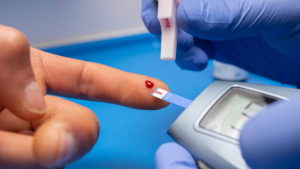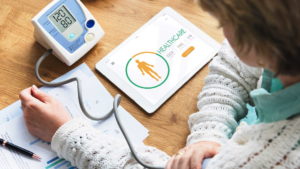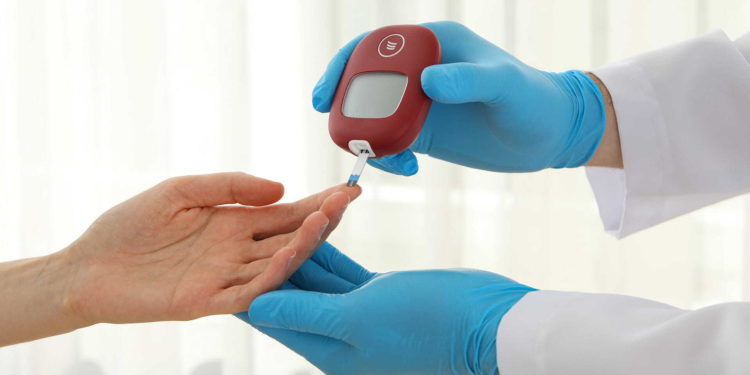Let us understand the ins and outs of Hypoglycemia reactive, a metabolic disorder characterized by low blood sugar levels that usually appear a few hours after a meal. Hypoglycemia reactive is a type of hypoglycemia that affects people without diabetes, despite some similarities to other hypoglycemia conditions such as diabetic hypoglycemia.
Here if we talk about a condition known as hypoglycemia, it is defined as having unusually low blood glucose (sugar) levels. There are several causes of hypoglycemia, like skipping meals or consuming insufficient food; excessive insulin; increased physical activity; and specific medical problems such as diabetes, hormone imbalances, liver illness, and kidney abnormalities.
Furthermore, the Hypoglycemia reactive condition can cause many symptoms, such as sweating, palpitations, shakiness, and confusion, which can seriously affect everyday functioning and general health. For those who are impacted by reactive hypoglycemia, it is vital to understand the reasons, signs, and treatment options.
This health condition can become a hurdle in your daily life when you are thinking about what happened to you or why I am shivering or shaking.
It is important to be aware of this condition and put your health first. Understand its ABCs, basic causes, typical symptoms, methods of diagnosis, and practical management techniques. Once you have clarity and direction on handling and managing Hypoglycemia reactive, it would be easy to consult the doctor and do as per requirements which is important.
Nonetheless, here is a detailed guide to Hypoglycemia reactive for you. Understand and stay updated!
Let us begin with,
What causes the fluctuations in our blood sugar levels?

The balance between the body’s synthesis, consumption, and storage of glucose is the primary factor influencing blood sugar fluctuations throughout the day.
Some factors contribute to this and here is the detail:
Nutritional Intake: Our blood sugar levels are strongly impacted by the stuff we eat. After meals, blood sugar levels rise sharply from the blood sugar level average due to the fast breakdown of carbohydrates, particularly simple sugars, into glucose. On the other hand, eating fat, protein, and complex carbs can cause the circulation to release glucose into the bloodstream more slowly and continuously.
Production of Insulin and Sensitivity: The pancreas secretes the hormone insulin, which is essential for controlling blood sugar level average. To help get glucose from the bloodstream into cells for use as fuel or storage, the pancreas releases insulin after a meal. Blood sugar swings can occur when people with insulin resistance or low insulin production struggle to control their blood sugar level average.
Physical Activity: The blood sugar level average can be significantly impacted by exercise. Muscles need more energy when exercising, which increases the amount of glucose they take up from the blood. This can result in a brief drop in blood sugar levels before, during, and after exercise, particularly in people using insulin or certain diabetic treatments.
Stress Hormones: Stress increases the production of glucose in the liver and decreases insulin sensitivity in cells, which can result in blood sugar elevation. Stress also causes the release of hormones like cortisol and adrenaline. Regular experience of stressful situations or chronic stress are two factors that might cause blood sugar level average to fluctuate over time.
Drugs and Medical Conditions: Some drugs, such as corticosteroids, can raise blood sugar levels. Furthermore, hormonal imbalances, thyroid issues, and diabetes can all have an impact on blood sugar management and cause variations.
Sleep Patterns: The body’s hormone balance, which includes insulin and cortisol, can be upset by inadequate or irregular sleep, which can result in changes in blood sugar levels.
Significance Of Maintaining The Blood Sugar Level Average In Body

For general health and well-being, the body must maintain optimal blood sugar levels. Sugar levels are important parts of human health and its fluctuations, in long or short terms, can cause huge disturbances. Here are the factors that highlight how vital it is to maintain blood sugar levels within a healthy range:
Energy Regulation: The body uses glucose, which is produced when carbs in food are broken down, as its main energy source for cells, particularly those in the brain and muscles. Supporting consistent blood sugar levels guarantees a continuous flow of energy for vital body processes.
Brain Function: Glucose is a major source of energy for the brain. Swings from the blood sugar level average can have an impact on mood, focus, and cognitive performance. Stable blood sugar levels promote ideal brain function, improving mental health overall and cognitive function in particular.
Controlling Blood Sugar Levels: Low blood sugar, Hypoglycemia reactive or hypoglycemia, and excessive blood sugar, or hyperglycemia, can both be harmful to health. Hyperglycemia can result in symptoms like increased thirst, frequent urination, and weariness, whereas hypoglycemia can induce symptoms like shakiness, confusion, and fainting. Keeping your blood sugar level average can help in avoiding the negative consequences of health.
Diabetes management: Keeping blood sugar level average ranges is crucial for people with diabetes to control their illness and avoid complications. Over time, stubbornly high blood sugar levels can harm organs and blood vessels, raising the risk of consequences like heart disease, stroke, kidney disease, nerve damage, and visual issues.
Weight control: Appetite control and metabolism are influenced by stable blood sugar levels. Blood sugar fluctuations can cause hunger pangs, desires for unhealthy meals, and trouble controlling weight. Blood sugar stabilization helps people manage their weight by enabling them to better control their appetite and choose healthier foods.
Energy Balance: The body’s capacity to effectively store and use energy is supported by the blood sugar level average. Excess glucose is stored as fat in the body when blood sugar levels are too high, which leads to weight gain and insulin resistance. On the other hand, the body may break down muscle tissue for energy when lower than the blood sugar level average, which can result in fatigue and muscle loss.
General Health and Good Life: Long-term blood sugar abnormalities, like those caused by diabetes, are linked to a higher chance of developing several illnesses, including kidney disease, nerve damage, cardiovascular disease, and visual issues. People can improve their life quality and lower their chance of getting some chronic health disorders by keeping their blood sugar levels at optimal levels.
What Is Hypoglycemia Reactive?
As we know, Hypoglycemia reactive is written off as low blood sugar levels that usually appear a few hours after a meal. Therefore, let’s simplify the process by which it happens in the body:
- Your digestive system breaks down food into smaller molecules, including glucose, a form of sugar, when you consume a meal, especially one that contains carbohydrates.
- After leaving the digestive system, glucose enters the bloodstream and supplies energy to all of the body’s cells.
- The pancreas releases insulin, a hormone that facilitates the entry of glucose into cells for either immediate energy consumption or storage for later use, in reaction to the rise in blood sugar level average following a meal.
- When a person has Hypoglycemia reactive, their body overreacts to a meal by releasing excessive amounts of insulin, which lowers their blood sugar levels.
- Afterward, symptoms of hypoglycemia reactive are felt like being unsettled, sweaty, dizzy, hungry, and confused. Usually, these signs appear a few hours after eating, particularly if the meal has a lot of carbohydrates.
- To bring blood sugar level average, the body uses counter-regulatory mechanisms in reaction to low blood sugar. Hormones including cortisol, adrenaline, and glucagon may be released in this process, encouraging the liver to release glucose that has been stored in the body into the bloodstream.
- Blood sugar levels rise as a result of the release of these hormones, and hypoglycemia symptoms typically go better. Nevertheless, there are situations when blood sugar levels overshoot, resulting in a brief episode of hyperglycemia (high blood sugar).
An important point is that Hypoglycemia reactive is a cycle in which there are recurrent bouts of low blood sugar that are followed by compensatory mechanisms to boost blood sugar levels. Symptoms from this cycle can have a major negative influence on day-to-day functioning and general well-being.
Symptoms Of Hypoglycemia Reactive
The symptoms of reactive hypoglycemia can vary widely in terms of intensity and duration. Usually, these signs appear a few hours after consuming a meal, particularly one that is rich in carbohydrates. However, the following is a thorough list of potential reactive hypoglycemia symptoms:
Shakiness or Trembling: Hypoglycemia reactive is frequently accompanied by shakiness or trembling, particularly in the hands. This happens because of how the body reacts to low blood sugar.
Sweating: Hypoglycemia reactive can manifest as excessive sweat, which is frequently accompanied by moistness or a feeling of being overheated.
Palpitations or Rapid Heartbeat: During periods of reactive hypoglycemia, some people may experience palpitations or an elevated heart rate. This can happen when the body releases adrenaline in an attempt to make up for low blood sugar levels.
Hunger: symptoms of hypoglycemia Reactive frequently manifests as extreme hunger, even soon after a meal. The body’s reaction to low blood sugar and the demand for more energy causes this to happen.
Fatigue or Weakness: Hypoglycemia reactive may be the cause of extremely high levels of fatigue, weakness, or exhaustion. Fatigue can result from low blood sugar levels, which can hinder the body’s ability to produce energy.
Dizziness or Lightheadedness: Reactive hypoglycemia frequently revealed as dizziness or lightheadedness, especially after standing up. Low blood sugar levels can cause a reduction in blood flow to the brain, which can lead to this.
Irritability or Mood Swings: During bouts of Hypoglycemia reactive, some people may experience irritability, mood swings, or emotional disturbances. Blood sugar swings have an impact on neurotransmitters in the brain, which can alter mood.
Inability to Concentrate: One of the most dominant signs of Hypoglycemia reactive is the inability to focus or concentrate on tasks. Low blood sugar levels can affect cognitive function, making it difficult to maintain attention or think effectively.
Anxiety or Nervousness: Reactive hypoglycemia episodes can cause feelings of anxiety or nervousness, which are frequently accompanied by panic or a sense of feeling a lot in life. Stress hormones released by the body in response to low blood sugar levels may be the cause of this.
Unclear Vision: During episodes of Hypoglycemia reactive, some people may have blurred vision or have trouble focusing their eyes. Low blood sugar levels can cause alterations in the blood flow to the eyes, which can lead to this.
Headache: One sign of reactive hypoglycemia could be a headache or migraine. Variations in blood sugar levels have the potential to impact brain blood vessels, resulting in headaches or migraines.
Nausea or Vomiting: Hypoglycemia reactive episodes might cause nausea or vomiting in certain people. The body’s reaction to low blood sugar and the production of stress hormones may cause this.
It is important to think that specific reactions to reactive hypoglycemia may differ and that not everyone will have all of these symptoms. Furthermore, symptoms of hypoglycemia reactive could be confused with those of other illnesses, so if you think you may have reactive hypoglycemia, it is important to see a doctor for a proper diagnosis and course of treatment.
Reactive Hypoglycemia causes
Reactive hypoglycemia can result from many conditions that impair the capacity of the body to control blood sugar levels. The following are a few possible reasons for reactive hypoglycemia:
Excessive Insulin Release: An overabundance of insulin released by the pancreas in reaction to a meal is one of the main reasons for Hypoglycemia reactive. There are several possible causes of this increased insulin release, including:
- Eating meals heavy in refined carbohydrates or sugars
- Reduced insulin sensitivity
- Drugs
Underlying Medical disorders: A person may be more susceptible to Hypoglycemia reactive if they have certain underlying medical disorders. These could consist of:
- Diabetes or prediabetes
- Hormonal disorders
- Gastrointestinal surgery
Food Factors: Reactive hypoglycemia can be more likely to occur in certain food patterns or habits. These could consist of:
- Skipping meals or eating at odd times
- Eating too much
Stress and Exercise: Excessive physical exercise or stressful circumstances can trigger the production of stress hormones like cortisol and adrenaline, which can momentarily raise blood sugar levels. However, in those who are vulnerable, the subsequent dip in blood sugar levels after the stress or activity passes might result in Hypoglycemia reactive.
It is worth mentioning that the primary hypoglycemia causes may vary from person to person and can vary greatly between individuals. The accurate assessment of the doctor and diagnosis is vital to pinpointing the precise causes of reactive hypoglycemia in each individual patient and formulating a suitable treatment strategy.
Does Hypoglycemia Reactive Pose A Health Risk?

Hypoglycemia reactive is often not seen as dangerous to health in and of itself. However, the symptoms associated with low blood sugar episodes can be extremely uncomfortable and have a detrimental effect on a person’s quality of life. These symptoms, which include shakiness, perspiration, disorientation, and hunger, can, be upsetting and interfere with day-to-day activities like:
Severe hypoglycemia episodes can damage coordination and cognitive function, which raises the possibility of accidents or injuries, especially if they happen when operating machinery or driving a vehicle.
Furthermore, Long or frequent episodes of Hypoglycemia reactive can have a serious negative effect on a person’s quality of life by causing anxiety, a fear of hypoglycemia, and restrictions on their ability to engage in social, professional, and recreational activities.
When hypoglycemia symptoms strike, some people may unintentionally overeat, which can have long-term health implications, weight gain, and metabolic disruptions.
Having Hypoglycemia reactive and having to deal with its uncertainty and unpredictability can lead to psychological distress, which includes symptoms of worry, despair, and stress.
Nonetheless, People with Reactive hypoglycemia must speak with a healthcare provider for an appropriate diagnosis and course of treatment.
How to Handle Hypoglycemia Reactive?
If you are suffering from the uncomfortable condition of Hypoglycemia reactive here is what you can do:
Maintain a Balanced Diet: Start with the most important factor of diet. Make sure your diet is well-rounded by consuming a range of whole foods, including fruits, vegetables, whole grains, lean meats, and healthy fats. Try eating more complex carbs, which digest more slowly and raise blood sugar levels gradually rather than suddenly, to help avoid blood sugar crashes and spikes. Eat less or stay away from foods high in simple carbs and refined sugars.
Consume Regular Meals and Snacks: Put your health first Schedule regular mealtimes and refrain from missing any meals. The blood sugar level average can be kept throughout the day by eating smaller, more balanced meals every several hours. To encourage fullness and reduce the absorption of carbohydrates, include foods high in protein in your meals and snacks.
Observe Your Carbohydrate Intake: Pay attention to the kinds and quantities of carbs you eat at each meal and snack. To assist in stabilizing blood sugar levels, consider portion sizes and try balanced meals that include a combination of carbs, protein, and fat.
Keep Yourself Hydrated: To stay hydrated, make sure you consume enough water throughout the day. Dehydration can worsen symptoms of hypoglycemia and have an impact on blood sugar management. Try to drink eight glasses of water or more if you live in a hot area or are physically active.
Frequent Physical Activity: Follow your doctor’s recommendations and get regular exercise or physical activity for blood sugar level average. Exercise can support weight management, enhance insulin sensitivity, and help in blood sugar regulation in general. Aim for two days a week or more of strength training exercises along with at least 150 minutes of moderate-intensity aerobic activity per week.
Handle Stress: To help manage stress to put health first, try stress-reduction methods like deep breathing, yoga, meditation, or mindfulness. Prolonged stress might affect how blood sugar is regulated and raise the possibility of hypoglycemia episodes.
Check Blood Sugar Levels: If you are at risk or have a history of Hypoglycemia reactive, you should think about checking your blood sugar levels regularly, particularly after meals or when you are physically active. By doing so, it will be possible to better manage and avoid hypoglycemia by identifying trends and triggers.
Speak with a Healthcare expert: Most importantly, for an accurate diagnosis and treatment, speak with a healthcare expert if you suspect reactive hypoglycemia or if you frequently encounter low blood sugar symptoms. They can assist in identifying the underlying reasons for your symptoms and creating a customized treatment plan to help you properly manage them.
This is all for Hypoglycemia reactive. Hopefully, you understood the basics and kept yourself updated.
Try to put your health first by staying conscious about it. Health is wealth and a blessing that must never be taken for granted!
So, learn about Hypoglycemia reactive more and share it to spread awareness.












